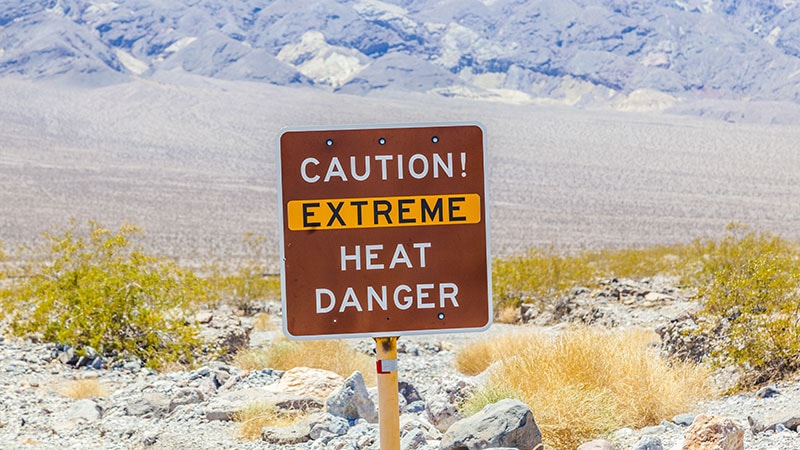The warming of the planet may mean more suicides, new research suggests. New findings show a significant association between higher temperatures and an increase in suicide deaths.
These findings “highlight the importance of implementing effective climate policies to reduce greenhouse gas emissions and tailoring public health policies to adapt to global warming,” investigators led by Renjie Chen, PhD, Fudan University, Shanghai, China, and colleagues, note.
The study was published online March 29 in JAMA Psychiatry.
Mentally Taxing?
Climate warming can exacerbate social and environmental risk factors for mental health and psychosocial well-being, contributing to emotional distress and the onset or worsening of mental health problems.
However, the potential harms of a warming planet on mental health have received far less attention than the effects on physical health.
Using a national death registry of China, the researchers identified 430,008 individuals who died by suicide in mainland China between 2013 and 2019. Their mean age was 57 years, 59% were male, and 86% had a middle school education or less.
The observed temperature–suicide associations were roughly linear, with increasing death risks at higher temperatures.
The relative risk of suicide death comparing the extreme high temperature (30.9°C) with the “minimum-mortality” (lowest risk) temperature (−17.4°C) was 1.44 (95% confidence interval [CI], 1.34 to 1.54).
“This indicates that a per 1°C increase in daily temperature was associated with a 0.91% increase in risk of suicide death under a linear association assumption,” the investigators report.
The excess risk was more prominent among adults aged 75 years and older (relative risk [RR], 1.71; 95% CI, 1.46 to 1.99) and those with a middle school education or less (RR, 1.46; 95% CI, 1.36 to 1.57).
Roughly 15% of suicide deaths were associated with nonoptimal temperature (temperatures greater than or less than minimum-mortality temperature).
The models project “consistent and drastic” increases in excess suicide deaths over this century under a “high” greenhouse gas emission scenario, whereas a leveling-off trend after the mid-21st century is predicted under medium- and low-emission scenarios.
Compared with the historical period (1980-2009), excess suicide deaths in China are predicted to increase by 8.3% to 11.4% in the 2050s and 8.5% to 21.7% in the 2090s under the three greenhouse gas emission scenarios, the study team reports.
The researchers believe the study “could contribute ample and reliable scientific knowledge to the broad field of climate and mental health” and may aid in the development of “evidence-based health protection plans to address adverse mental health risks associated [with] climate warming.”
A Few Degrees May Be All It Takes
Kiffer Card, PhD, who wasn’t involved in the study, told Medscape Medical News that it’s no surprise that there is a relationship between exposure to extreme heat and an increased risk for suicide.
“When people are already so mentally taxed, even a few degrees change in temperature can be enough to put them over the edge,” said Card, president and chair of the Mental Health and Climate Change Alliance and assistant professor of health sciences at Simon Fraser University, Burnaby, British Columbia, Canada.
Card suspects this reflects a broader problem than just heat, but certainly a lack of resilience to heat is “concerning.”
“As human beings, our bodies have limited resources and reserves, and extreme temperatures tap those resources rather quickly as they must divert away from cognitive functions to keeping the body cool. With less cognitive control people are at risk for emotional distress,” Card told Medscape Medical News.
There are several strategies that may help combat the negative effects of extreme heat, Card said.
“We can reduce physiological and psychological stress. That means addressing people’s needs generally, but specifically in the context of heat — people need to understand how heat affects cognition, and how to cool their bodies off with a cool towel around the neck, a fan and some ice, or a cold drink. If people can alleviate the physiological stress induced by heat, they will have the more cognitive energy to manage their emotions,” Card said.
However, he acknowledged that some interventions may be more easily said than done.
“During British Columbia’s heat wave in 2021, some of our collaborators had conversations with folks who recalled not even being able to think about common sense solutions to temperature control, like a cold shirt. They were too hot to think or act,” Card said.
This research was supported by grants from the National Key Research and Development Program, the Shanghai Municipal Science and Technology Commission, and the Shanghai International Science and Technology Partnership Project. Chen and Card reported no relevant financial relationships.
For more news, follow Medscape on Facebook, Twitter, Instagram, YouTube, and LinkedIn.
